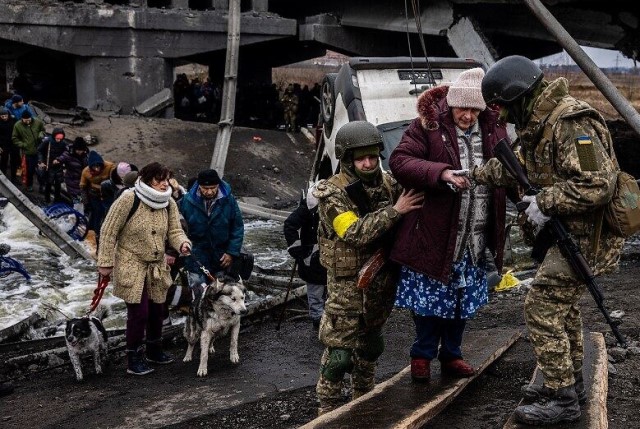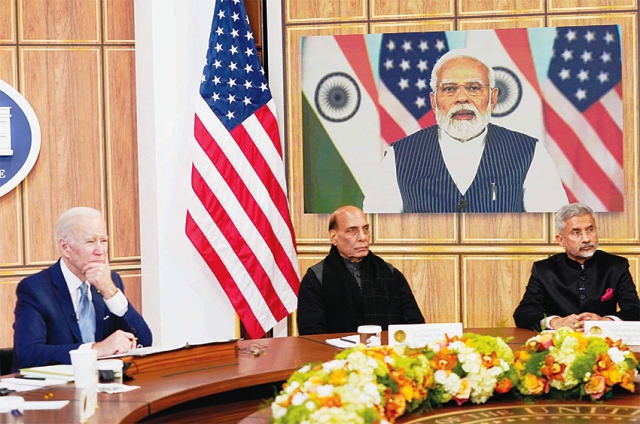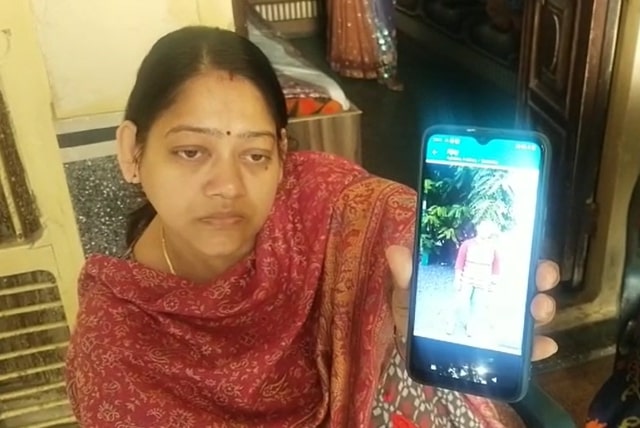It is not clear what the President of Ukraine expects the end of the war will look like. It is obvious what India’s options are. It is uncertain whether the West has clearly thought out the consequences of its involvement. However, what is clear is that the Ukraine war has started rearranging the order of power in the world, spelling a possible end to a globalised economy and testing world’s leading institutions. If 9/11 precipitated the age of the neurotic State fearful of its own citizens, the Ukraine war is starting the reshuffling of world order and possibly paving the way to reconfigurations of States in future. In this series, I explore each of this in turn.
That Russia is a very powerful country with some successful military campaigns behind it in recent decade cannot be disputed. That Ukraine is relatively a small power with a much smaller army and arsenal compared to Russia is also not contestable.
When Russia surrounded Ukraine in the East and North East, the general view was that if provoked, it would crush Ukraine in a short time. The United States war in Afghanistan lasted nearly 20 years while in Iraq it was about 15 years. The Syrian war is still going on after ten years. Comparatively, the Ukraine war is expected to last much shorter period, perhaps a year.
Ukraine’s choice was between compromising some of its sovereignty or risk war. It bravely chose to take on Russia. The odds are heavy when one compares the military strengths of the two.
With an army of around a million and reserves of around 2 million, Russia also has a phenomenal arsenal. It has 6,255 nuclear warheads, the largest in the world. Some of its hypersonic missile technology surpasses any in the West. It has so far only deployed about 10-15% of its fighting capabilities in Ukraine.
Ukraine is a smaller country with an army of some 200,000 and paramilitary forces consisting of National Guard and Border Guard etc of 60,000. Comparatively it has far fewer weapons, aircraft and missiles and most of them are from the Soviet era, although it has an arms manufacturing industry as well. But training its army, helping with strategy are officers from several western NATO countries, particularly United States and United Kingdom, although both deny any active participation in Ukraine itself having shifted training centres into Germany since February 2022.
ALSO READ: Theatre of Horror In Ukraine
It appears that Russia first surrounded Kyiv from two sides to intimidate Ukraine to give it an opportunity to accept its terms to avoid war. The Russian terms were: Ukraine declare neutrality and pass in law that it would not join NATO. Russia required it to decentralise and give autonomy to Donbas regions, second language status to Russian language and what it calls ‘denazification’ of Ukraine military. Russia considers the Azov forces to be Nazi like outfits. That Azov outfits were hard core right wing with Nazi regalia was also widely reported in most western media until the war started.
Kyiv refused Russian terms. Russia invaded. Having seen that Ukrainian army was intent to fight back ferociously, Russia withdrew and readjusted its tactics to ones it employed in Syria. Concentrating on Donbas as well as South of Ukraine, its approach is merciless destruction and onslaught of key strategic areas using a combination of ground troops and air borne fire. This is producing it results.
There is also suggestions that Russian intelligence about lack of Ukraine resistance was wrong. It is possible that some western agencies may have identified pro-Russian agents and spoon fed them disinformation through Ukrainian officials.
Since the attack, the Ukraine President and other politicians have appealed passionately for the west to get involved directly, either by imposing no fly zones or boots on the ground. However even before the war, USA, UK and European powers had indicated that they would not physically come to Ukraine’s aid. Everyone fears a nuclear war. No one is keen to destroy the whole world yet. The west has nevertheless resorted to sanctions, supply of weapons and training of Ukrainian army. Characteristically Britain has been the most gung-ho, still attempting to play big. Moreover as admitted by US media, the United States has been engaged throughout the campaign in providing intelligence, guiding strategy and targets. Russian media insists that US personnel are on the ground advising tactics, manning equipment etc and some have been captured.
The west seems keen for this war to prolong. It hopes this weakens Russian capability through loss of personnel and armour. It also gives NATO enough intelligence to understand Russian tactics, strategies and the lethal effectiveness or functionalities of its armour. It helps NATO forces to prepare for a real confrontation with Russia.
The West is now suppling some advanced weapons. When used it will be an exhibition of their effectiveness. This increases sales as it already has. US arms producers are expected to gain $17 Billion from supply of these weapons and more in future world orders. Some of its decision makers will gain profits from the new package announced for Ukraine. Türkey has already seen manyfold increase in orders for its Bayraktar drones that have gained legendary status against Russian Tanks. Ukraine has been a proxy fighter for NATO, particularly USA and being used as an arms fair to show piece weapons.
For Russia too, the war is an opportunity to learn. It has been engaged in wars in developing countries and against non-State actors such as Syrian rebels. Ukraine is the first real European fighting machine that it is encountering. Armies can do all the simulation exercises in training, but they harden and mature in real battles. Russian arms saw a five-fold increase in sale after Syria. Although components are becoming difficult due to sanctions, Russia is testing some of its latest lethal weapons from time to time in Ukraine. Their sales will grow after the war.
War is an ugly affair and brings out the worst in humanity despite all the human rights treaties and conventions. It’s a merciless killing ground. Once it starts, few if any morals survive in war.
With all the odds stacked against it, realising that no western armies are flying in to help and possibly conscious that they are now fighting a proxy war at great expense to themselves, it is still not clear what the Ukrainian leadership is realistically hoping to achieve at the end. About a quarter of its population is now displaced and many have fled the country. Its cities have been devastated. It has lost territory.
Whether Russia is right or wrong to have gone into Ukraine is immaterial now. Despite the drama of war crimes courts, Putin isn’t going to face any trial any more than Bush or Blair will face trials for Iraq, unless there is capitulation by Russia and a coup hands him over. Fortunes of wars are not decided by morality, laws or international conventions but by might. Currently, it does not look good for Ukraine.
It is all very well to say, Ukrainians have a right to defend themselves. But the western world is indulging its own morals and strategic policies to weaken Russia at the expense of Ukrainian families, children and elderly people, even when the situation looks hopeless.
Russia isn’t going anywhere and Donbas is lost. Russia’s army is still intact. It is weathering the sanctions and seems to have factored in the losses in men and arms. Putin’s ratings are higher domestically. Ukraine’s army has lost about 25% of its personnel. Its weapons are depleting. In some wars, the attacked victim has no choice but to fight or die. Ukraine had choices and still has some. Its choices are now limited as the veteran strategist Henry Kissinger has stated. Is it time to accept the inevitable and avoid further bloodshed.
(This is the first part of a series on Russia-Ukraine war to appear in these columns)




